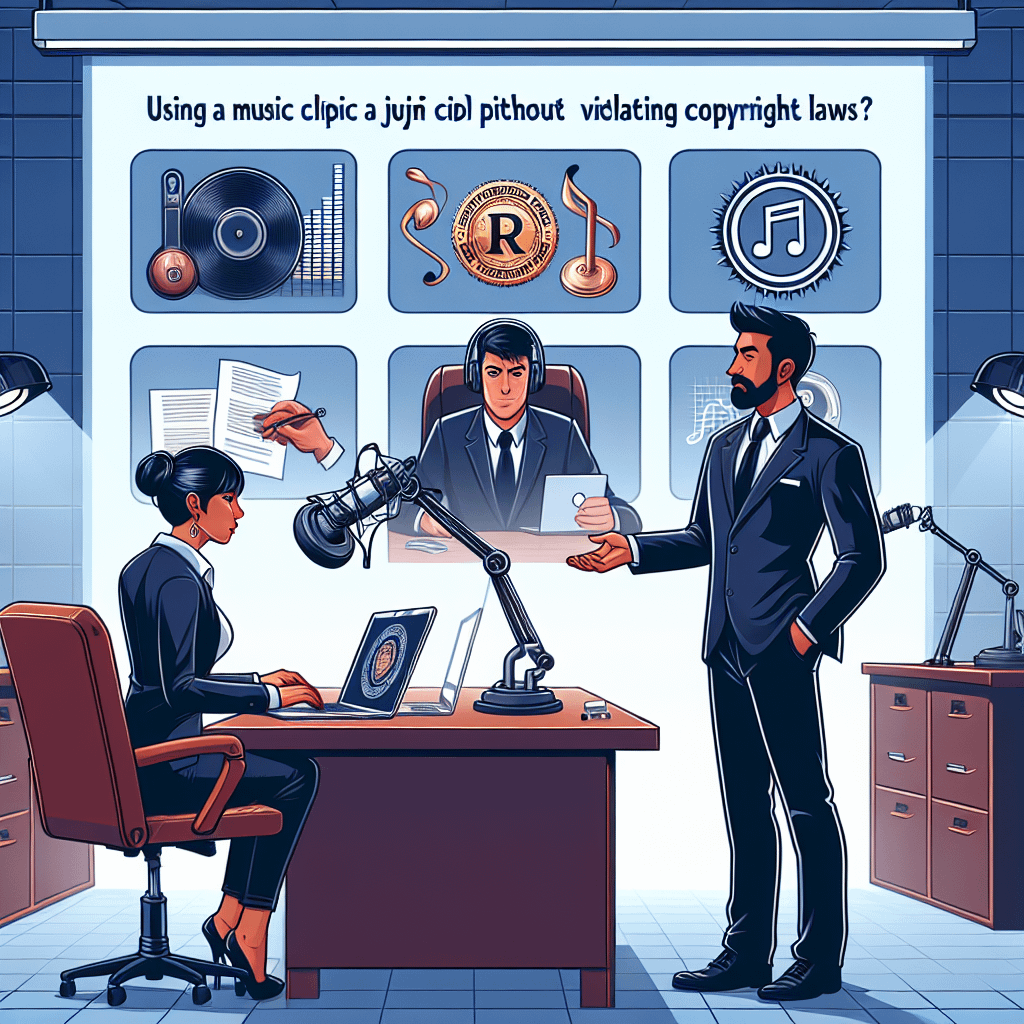Using music in your podcast can add a lot of flavor and mood to your content, but it’s important to ensure you’re not stepping into legal hot water. Copyright laws can be tricky, but with a little guidance, you can navigate them safely. Here’s what you need to know to use a music clip in your podcast without violating copyright laws.
Understanding Copyright
First things first, let’s break down what copyright means. Copyright is a form of protection given to the creators of “original works of authorship,” including music. This protection means that the owner has exclusive rights to use, reproduce, and distribute their creation. Just playing a song on your podcast without permission could violate these rights.
Why Copyright Matters in Podcasts
A podcast is effectively a broadcast, which means using any music you didn’t create or do not own can lead to potential legal trouble. This is because, whenever you use a copyrighted song, the creator or rights holder has the right to determine how it’s used and could potentially seek compensation or legal action if their permission isn’t obtained.
Tracks in the Public Domain
One of the simplest ways to use music legally is by incorporating tracks that are in the public domain. Public domain works are free to use by everyone because the copyright has expired, usually 70 years after the creator’s death. However, the majority of popular modern music still has active copyright protection, so public domain music might not cover the style you’re aiming for.
Utilizing Royalty-Free and Creative Commons Music
Another solid option is royalty-free music. This doesn’t mean the music is free to use; rather, you pay a one-time fee or subscription to use the track as much as you want. It’s an affordable and hassle-free way to incorporate music into your podcast without worrying about copyright.
Creative Commons is similar and allows artists to give permission for others to use their music under certain conditions. These conditions can vary, from giving credit to the artist to not using the music for commercial purposes. Always check the specific license to ensure you’re in compliance.
Securing a License
If your heart is set on using a particular song that doesn’t fall into the public domain or isn’t available as royalty-free or under a Creative Commons license, you need to seek a license. There are two main types of licenses you might need:
1. Master License: This allows you to use the original recording of the song.2. Synchronization License: This is needed if you’re pairing music with other content, like a podcast.
You’d typically obtain these licenses from the music’s publisher or record label. While this can be a more complex route, it ensures that you’re using music legally and respecting the artist’s rights.
Incorporating Fair Use
Fair Use is another legal principle under copyright law allowing limited use of copyrighted material without permission under certain circumstances, such as commentary, criticism, or parody. However, Fair Use is often vague and determined on a case-by-case basis in courts, making it a risky defense if your use is challenged. It’s best to steer clear of relying solely on Fair Use unless you’re very familiar with its application and confident in your position.
Practical Tips for Podcast Creators
- Explore Music Libraries: Websites like Epidemic Sound, Audiojungle, or Free Music Archive offer various royalty-free tracks that can be legally used in podcasts.
- Attribute Creatively: When using Creative Commons licensed music, ensure you provide proper attribution in your podcast description or during the broadcast.
- Consult Professionals: If you’re uncertain, especially when considering popular music, it could be worth consulting a lawyer who specializes in media and intellectual property law.
- Use Original Content: Consider commissioning original music, either by collaborating with a musician who transfers or licenses the rights to you, or by creating your own if you have the skill set.
In conclusion, while using music in your podcast involves navigating copyright laws, there are various paths to do so legally. By understanding your options—from public domain tracks to properly licensed music—you can create an engaging podcast that respects the creative rights of artists.








